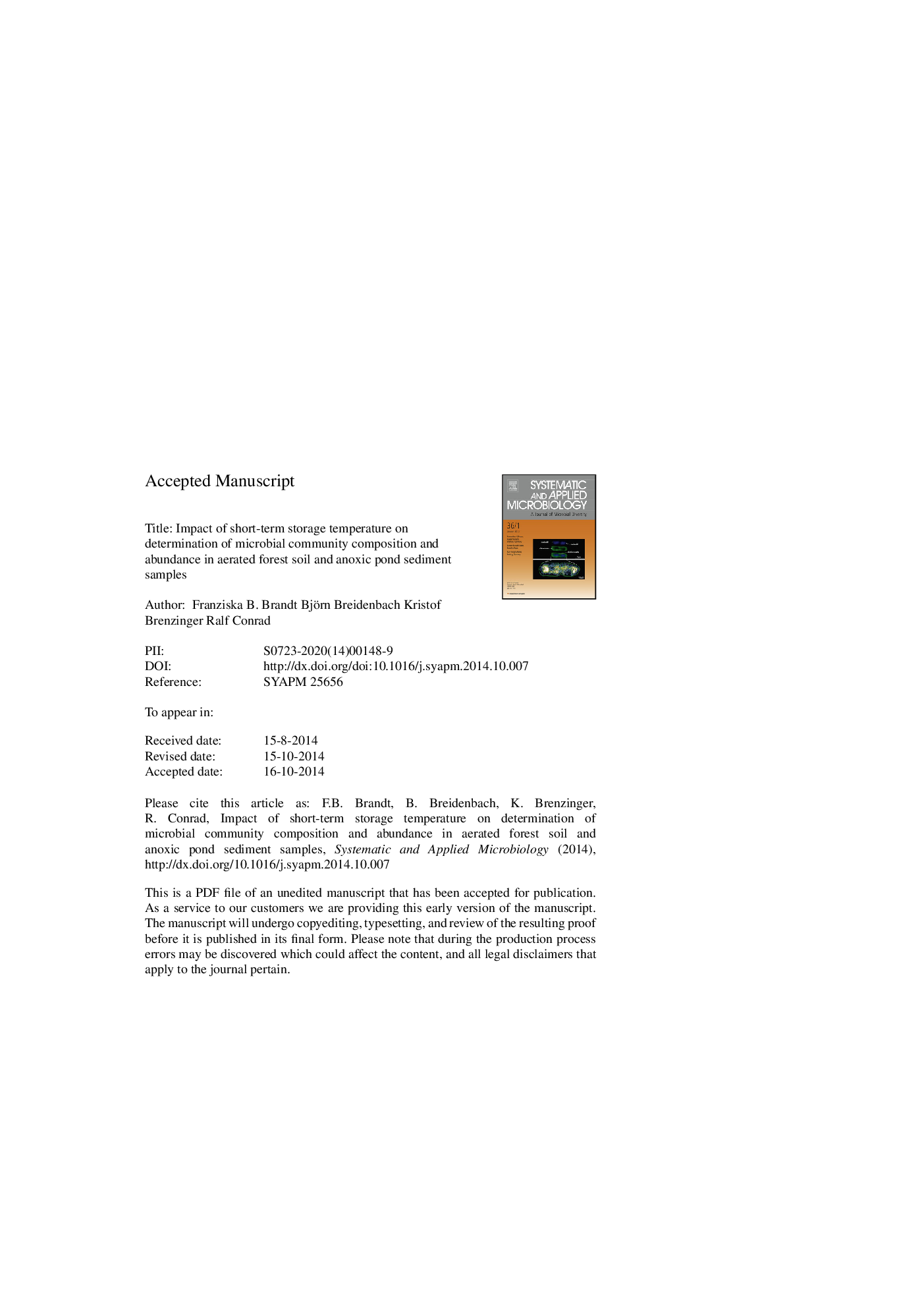| Article ID | Journal | Published Year | Pages | File Type |
|---|---|---|---|---|
| 10879384 | Systematic and Applied Microbiology | 2014 | 35 Pages |
Abstract
Sampling strategy is important for unbiased analysis of the characteristics of microbial communities in the environment. During field work it is not always possible to analyze fresh samples immediately or store them frozen. Therefore, the effect of short-term storage temperature was investigated on the abundance and composition of bacterial, archaeal and denitrifying communities in environmental samples from two different sampling sites. Oxic forest soil and anoxic pond sediment were investigated by measuring microbial abundance (DNA) and transcriptional activity (RNA). Prior to investigating the effect of storage temperature, samples were immediately analyzed, in order to represent the original situation in the habitat. The effect of storage temperature was then determined after 11 days at different low temperatures (room temperature, 4 °C, â22 °C and â80 °C). Community profiling using terminal restriction fragment length polymorphism (T-RFLP) showed no significant differences between the immediately analyzed reference sample and the samples stored at different incubation temperatures, both for DNA and RNA extracts. The abundance of microbial communities was determined using quantitative PCR and it also revealed a stable community size at all temperatures tested. By contrast, incubation at an elevated temperature (37 °C) resulted in changed bacterial community composition. In conclusion, short-term storage, even at room temperature, did not affect microbial community composition, abundance and transcriptional activity in aerated forest soil and anoxic pond sediment.
Related Topics
Life Sciences
Agricultural and Biological Sciences
Ecology, Evolution, Behavior and Systematics
Authors
Franziska B. Brandt, Björn Breidenbach, Kristof Brenzinger, Ralf Conrad,
